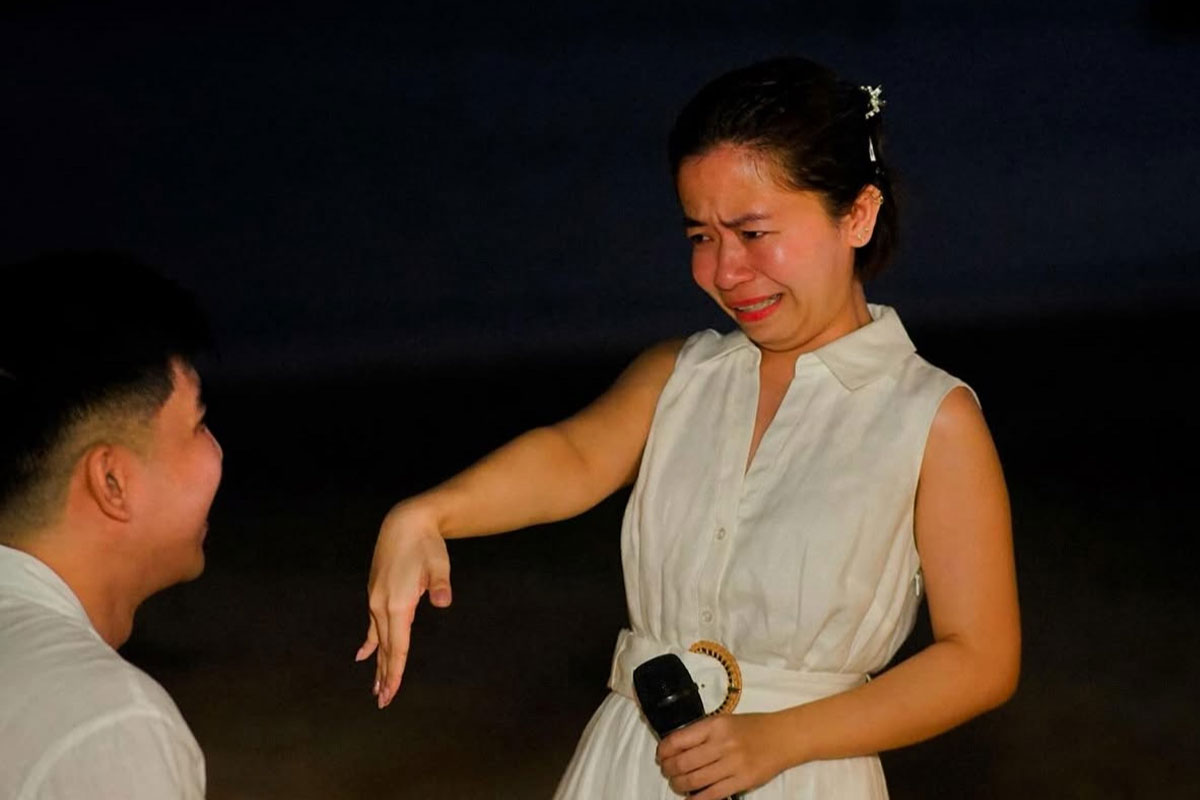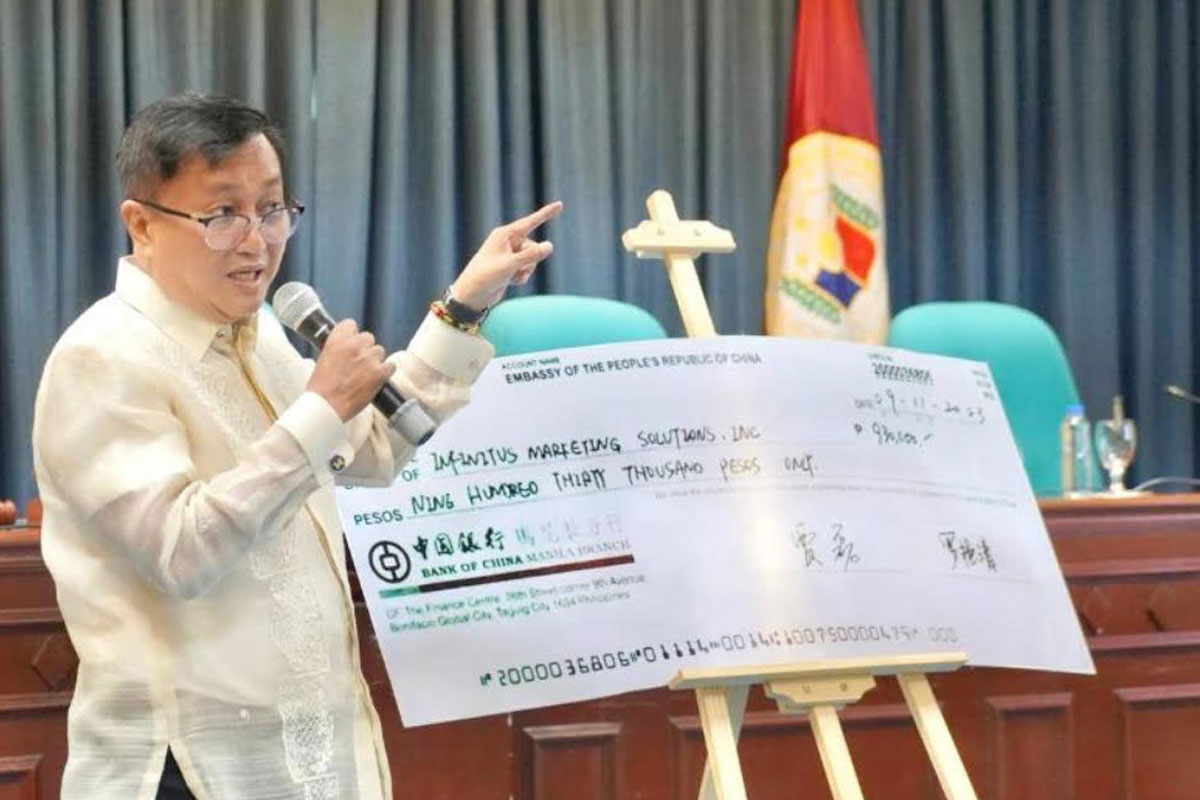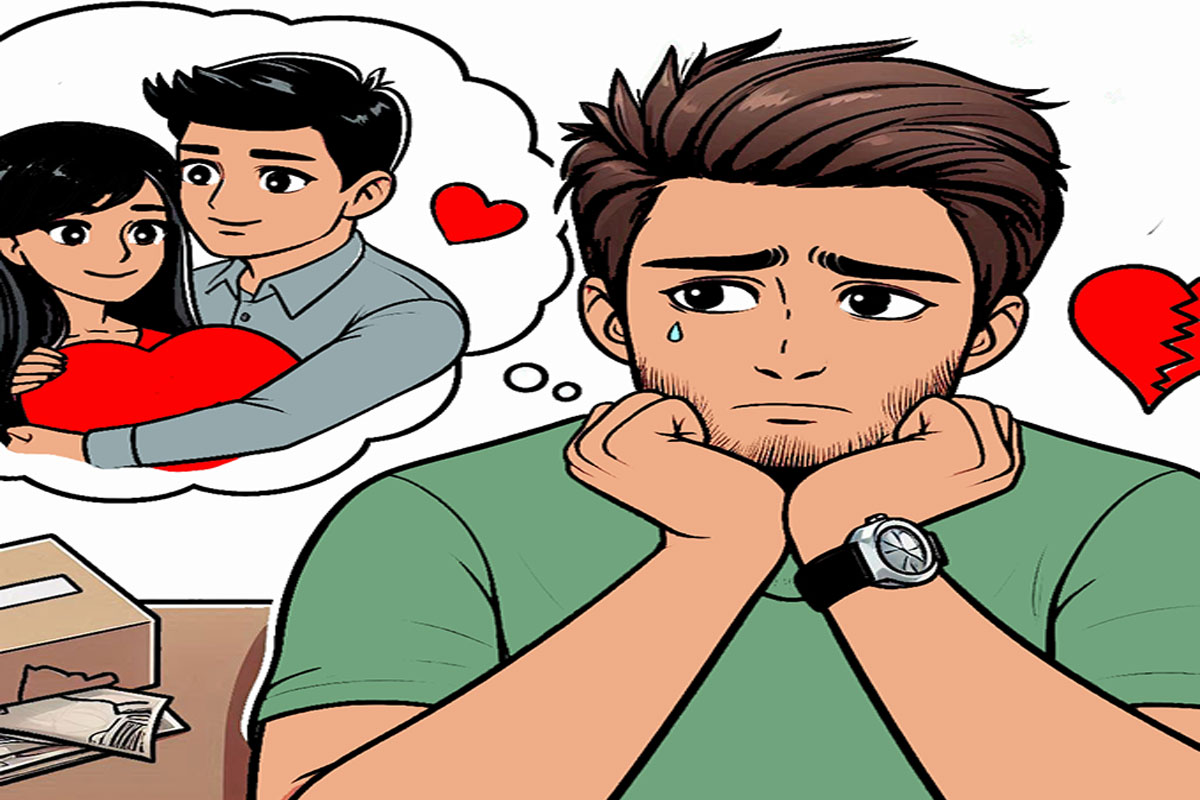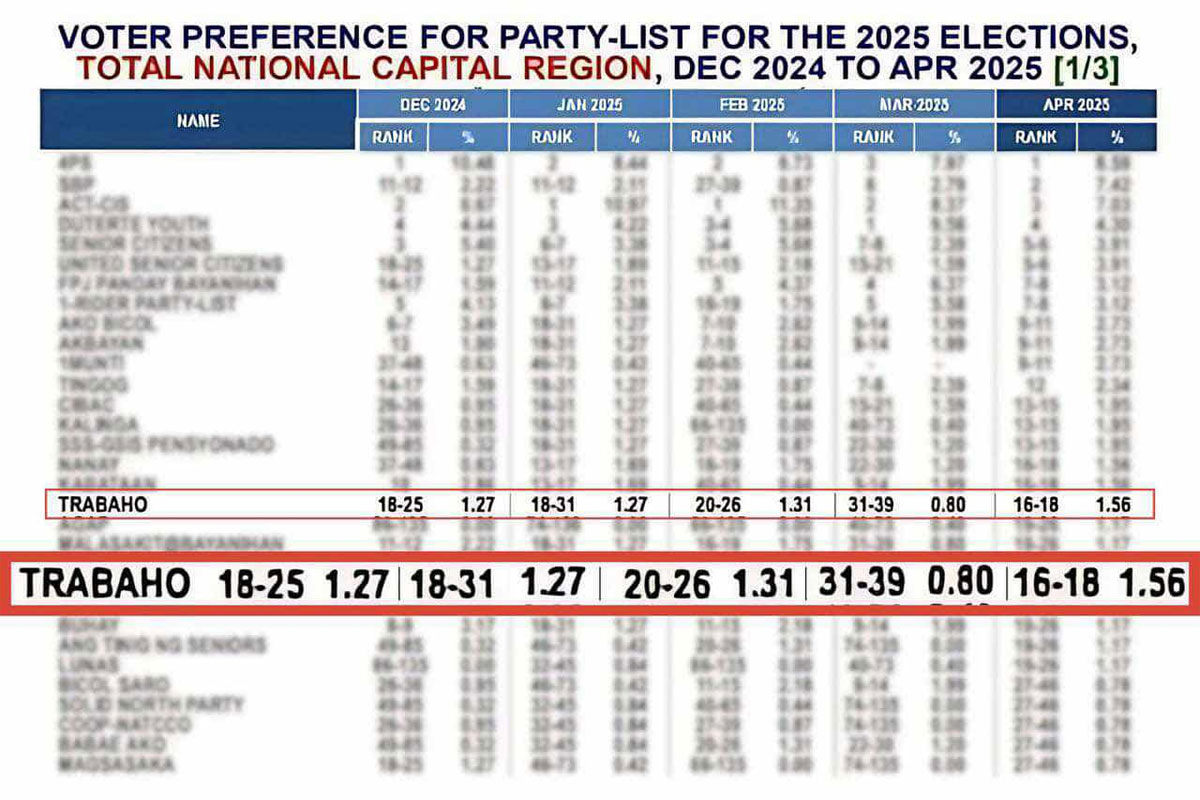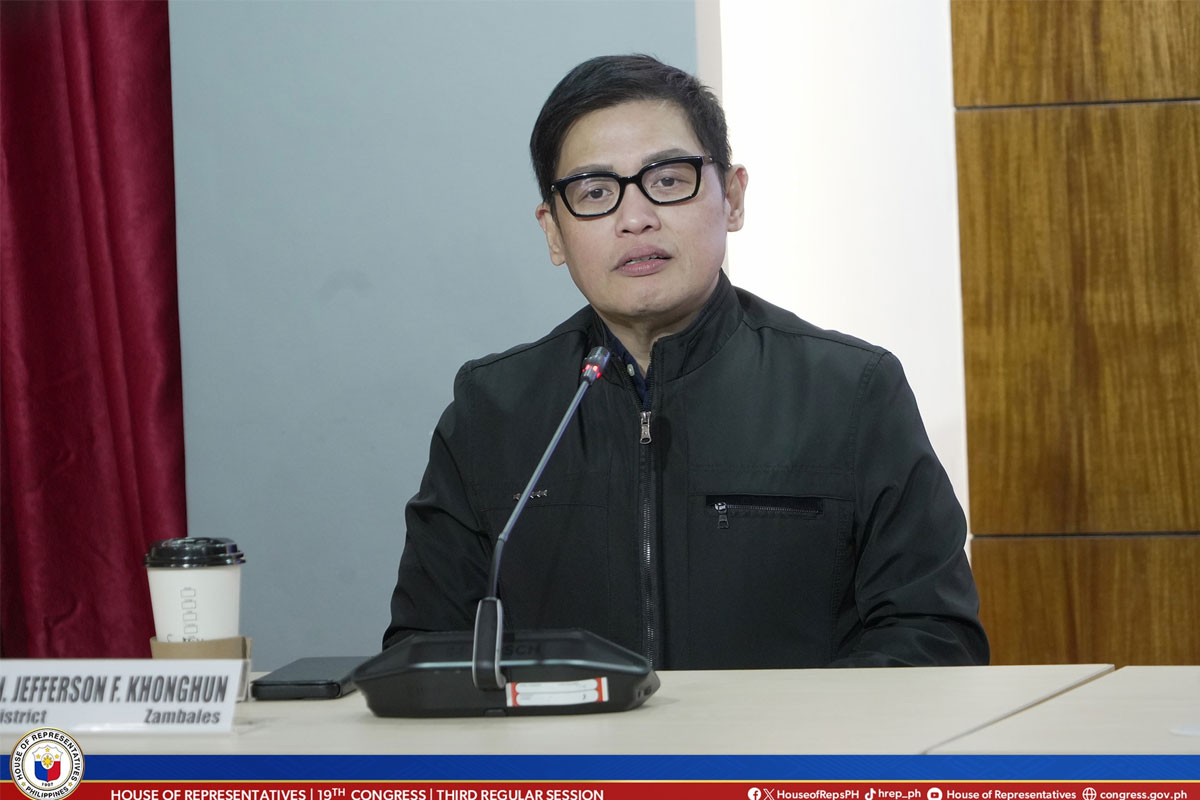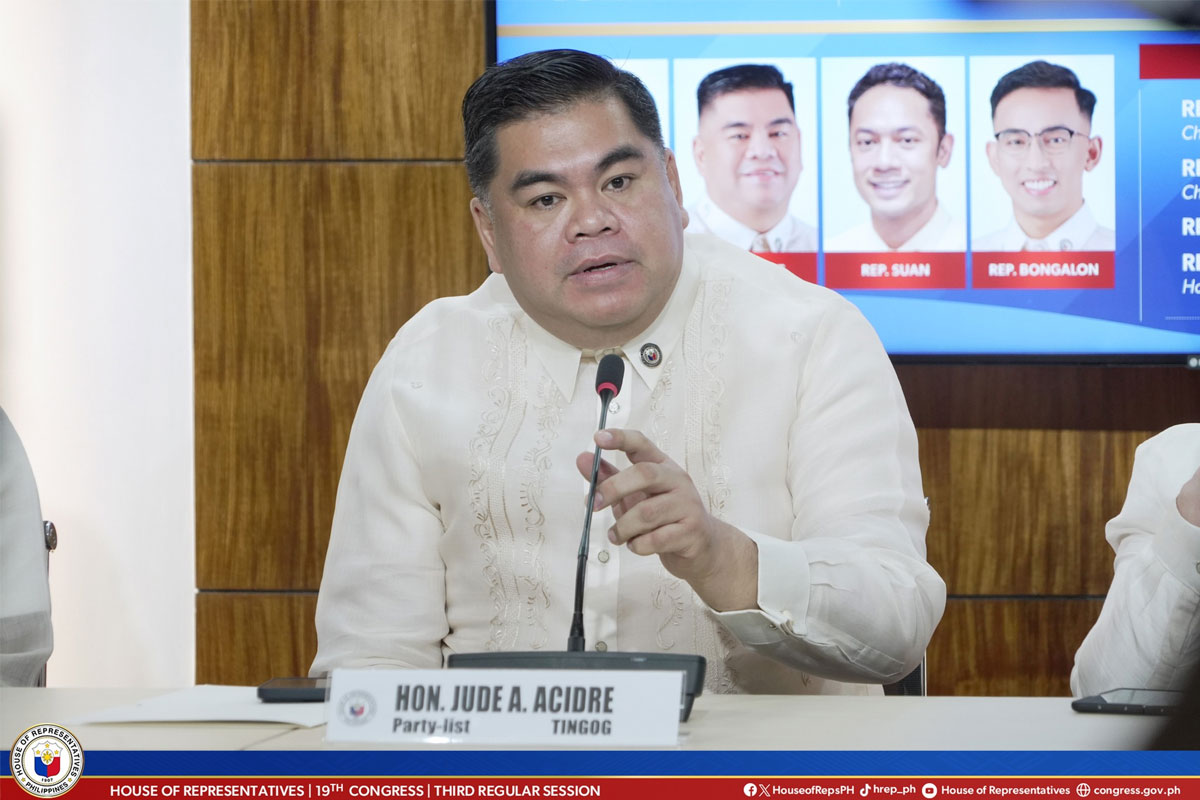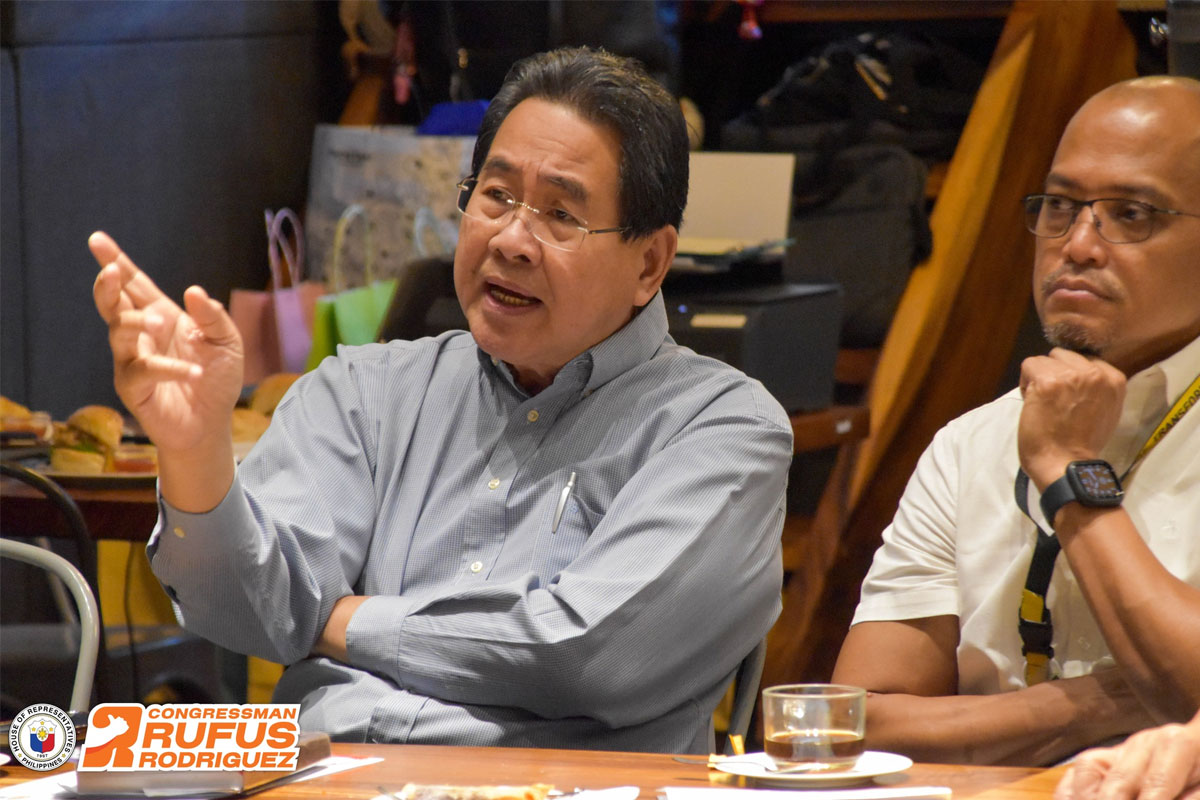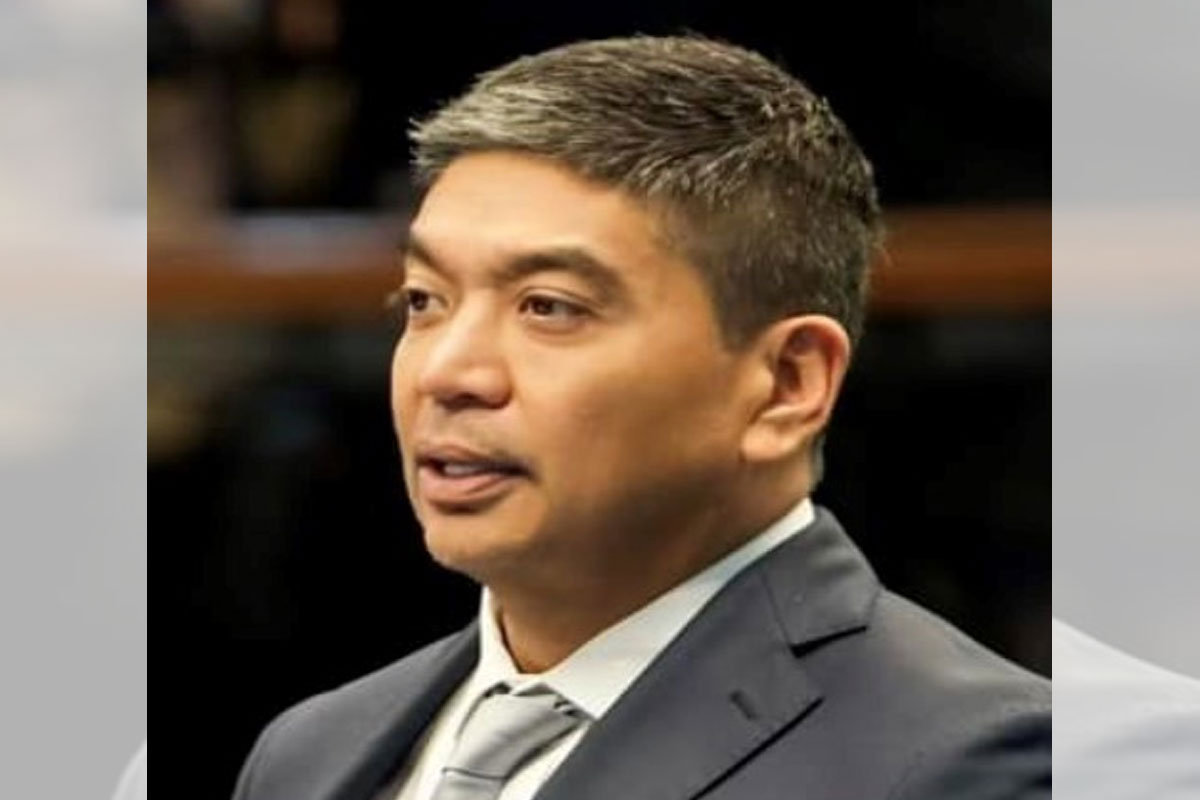
Villafuerte bullish on Congress OK of bill allowing use of medical cannabis
CAMARINES Sur Rep. LRay Villafuerte is more bullish this time around about the approval this final session of the 19th Congress of a proposed law giving Filipinos stricken with severe ailments like cancer, epilepsy and multiple sclerosis access to the now prohibited medical cannabis as an alternative treatment for their afflictions.
Villafuerte, National Unity Party (NUP) president, voiced such optimism following the approval by the House of Representatives on third and final reading of House Bill (HB) 10439, or the “Access to Medical Cannabis Act,” delisting cannabidiol (CBD)—the non-addictive strain of cannabis sativa or the marijuana plant—from the list of prohibited dangerous drugs under Republic Act (RA) No. 9165 or the “Comprehensive Dangerous Drugs Act of 2002.”
The Camarines Sur solon is a lead author of HB 10439, which was approved recently by the House of Representatives by a vote of 177-9 with 9 abstentions, and that seeks to create a Medical Cannabis Office (MDO) to regulate the supply, importation, production and sale of CBD, along with its alternative use as a painkiller or relaxant for qualified patients with debilitating and non-debilitating medical conditions as classified by the Department of Health (DOH).
“With the House’s final approval of HB 10439, the only thing needed now is for our senators to pass the counterpart medical cannabis bill pending in their chamber, so we can hammer out a consolidated bill for submission to, and enactment into law by, President Marcos this third and final session of the 19th Congress,” said Villafuerte, a longtime advocate of the legalization of CBD oil strictly for medical purposes only.
“Hence, I am more upbeat that the Congress will be able this time around to finally write a law allowing qualified patients with debilitating or non-debilitating diseases, as classified by the DOH, to use CBD as an alternative treatment for their maladies,” Villafuerte said.
Villafuerte noted that Senate Bill (SB) No. 2573—or the Senate version of HB 10439 principally authored by Sen. Robinhood Padilla—has a good chance of passing in that chamber this third legislative session because the Committee Report (CR) No. 210 on CBD’s legalization had been set for plenary discussions after being signed by 13 senators in the previous regular session.
Both HB 10439 and SB 2573 propose the creation of an MCO to oversee the licensing and use of CBD oil for medical purposes.
Alongside its benefit as an alternative medical treatment for certain diseases, Villafuerte said that HB 10439 clears the way to the establishment of a new industry on the production and trade of CBD oil products in the highly lucrative global market for medical cannabis.
Villafuerte explained that he has pushed since the past Congresses the legalization of CBD because this oil is non-addictive and is different from tetrahydrocannabinol (THC), which is another active ingredient of cannabis sativa that has intoxicating or psychoactive qualities that produce the “high” or buzz for those who smoke or eat it.
“And because it is non-addictive, CBD oil has been proven safe for use by qualified patients as a painkiller or relaxant to alleviate their agonizing conditions like migraines, epilepsy, auto-immune diseases, multiple sclerosis and end-stage cancer, Villafuerte said.
HB 10439 had consolidated 10 bills lifting the ban on the local use of CBD, including HB 4208 that Villafuerte had authored with fellow CamSur Reps. Miguel Luis Villafuerte and Tsuyoshi Anthony Horibata along with the Bicol Saro partylist.
Villafuerte’s earlier legislative proposals on the legalization of CBD oil for medical purposes were passed on third and final reading by the House in the 17th Congress, and approved at the House committee’s technical working group (TWG) level in the 18th Congress.
But Villafuerte’s bills got stuck in the House in both instances in the absence of Senate-approved counterpart bills.
Villafuerte recalled that in the second regular session of the 19th Congress, the CBD legalization bill was endorsed jointly for plenary approval by the House committee on dangerous drugs chaired by Surigao del Norte Rep. Robert Ace Barbers and its committee on health headed by Batanes Rep. Ciriaco Gato Jr.
As he had pointed out in one of the House joint committee hearings on the proposed CBD legalization bill, Villafuerte said that while health regulations exist on the compassionate use of medical marijuana for treatment of certain diseases, applying for the importation and local medical use of CBD products is so tedious for applicants.
Moreover, CBD oil products are expensive abroad such that poor patients in the Philippines are unlikely to afford them, he said.
Villafuerte said that HB 10439 proposes the creation of an MCO under the DOH to accredit, in coordination with the Dangerous Drugs Board (DDB), qualified doctors who shall be authorized to prescribe CBD as an alternative treatment for certain patients, as what is now practiced in over 60 countries worldwide.
“The proposed MCO, to be under the DOH’s supervision and control, shall be tasked likewise to accredit drugstores, hospitals, clinics and dispensaries allowed to sell drugs containing CBD,” he said.
He stressed, however, that under the House-passed substitute bill, only CBD will be legalized as marijuana will remain on the DDB’s list of dangerous drugs.
Although the DOH-attached Food and Drug Administration (FDA) now issues compassionate special permits (CSPs) allowing qualified patients to use imported CBD drugs, Villafuerte pointed out that a new law legalizing CDO is still necessary because the FDA system for applying for CSP permits and importing drugs containing CBD is “so tedious, hard and expensive” that only one permit has been issued thus far by this agency.
Villafuerte pointed out that only the medical use of CBD extracted from the cannabis sativa plant is being decriminalized under HB 10439, because marijuana or ‘Indian hemp’ shall remain on the list of dangerous or illegal drugs under RA 9165.
“There is a question and ambiguity, as CBD is not legal per se. That’s why we want to pass a law,” he said. Although the UN (United Nations) has already reclassified cannabis and resins under an international listing that recognizes their medical value, it’s still on a case-to-case basis per country. And in this case, if you are caught in possession of CBD, you will be penalized.”
Villafuerte said that HB 10439 aims “to correct this because even if the FDA is now authorized to issue CSPs or special permits for patients to use CBD drugs as an alternative treatment, I asked them (FDA) during the last joint hearing how many permits they have issued, and they replied that only one CSP application has been approved over the years. This, I believe, is because the process is apparently so tedious, hard and expensive.”
Villafuerte said that in the UN declaration, it was stated that cannabis derived for medical purposes has no potential to be abused or cause dependency.
“CBD, which is the main ingredient in medical cannabis, is not addictive. There are over 60 countries already where CBD is legalized, and I have not heard from any of those countries reporting an addiction to CBD. I think we have to streamline the process of allowing qualified patients to avail of medical cannabis, to make it more accessible to them.”
During a House joint committee hearing last August 2023, Villafuerte asked Director Jesusa Joyce Cirunay of the FDA Center for Drug Regulation and Research on how many CSPs have been issued by the agency, and Cirunay replied: “We have only one CSP.”
Villafuerte said: “Kasi napaka hirap talaga pong mag apply, ngayon pag nag apply ka na and granted naman, mas mahirap humingi ng import permit at ang pinaka mahirap pagkatapos ka ng ilang buwan na maka kuha ka na ng CSP at magkaroon ng import permit, mas mahirap po sa pasyente mag raise ng pera, bumili kasi mahal.”
During the Commission on Appointments (CA) hearing last September 2023 on his posting as DOH chief, Secretary Teodoro Herbosa revealed that he supported the legalization of the medical use of CBD.
This prompted Villafuerte, who is CA majority leader, to say at that session of the bicameral appointments panel: “Thank you for saying that. I’m very happy because I strongly advocate this. Over 60 countries all over the world have already legalized medical cannabis. And I don’t know why the Philippines is delaying this. What do the 60 countries know that we don’t? The only news that I have read from these countries is that (medical cannabis) is very beneficial, and, secondly, their revenues have increased (from its medical use).”
“Wala pong namatay sa overdose or an increase in crimes,” Villafuerte said. “So I am very happy to hear that is your (Herbosa) stand because during past congressional discussions on the legalization of medical cannabis, DOH representatives strongly opposed the legalization of medical cannabis.”
The CA majority leader said that while Herbosa is now saying that he was in favor of cannabis’ medical use, “Ang sinasabi po nila (other DOH officials) ay hindi na pala kailangan i-legalize dahil meron na raw … na allow na ang use ng medical cannabis through a CSP. Is that correct?”
Herbosa replied, “That is correct, your honor, there is a compassionate use permit given by the FDA, pero ito po ay napakahirap, kasi ire-request pa ng isang doktor sa FDA yung paperwork bago ma-import ‘yung medical cannabis.”
Villafuerte told Herbosa and the CA that the United States FDA has already approved medicines that contain cannabis, such as Epidiolex, Sativex, Sinemet and Marinol.
The House-approved bill imposes on violators a fine ranging from P500,000 to P1 million or imprisonment of six months to six years, depending on the discretion of the court.
Under the bill, “debilitating medical conditions” refer to ailments that produce either or several of the following: acute or chronic pain, extreme nausea, cachexia or wasting syndrome, seizures, or serious and persistent muscle spasms.
Such afflictions include cancer, multiple sclerosis, damage to the nervous system, glaucoma, positive status for human immunodeficiency virus (HIV) or AIDS, post-traumatic stress disorder (PTSD), rheumatoid arthritis and other ailments identified by the DOH.
Meanwhile, “non-delibitating medical conditions” cover medical issues, which, although not severe or disabling, can still impact on the well-being and quality of life of patients in causing them discomfort or distress while doing their daily activities.
Villafuerte observed that other countries with zero tolerance for drug trafficking like China, Thailand and Singapore are either already producing medical cannabis or considering the legalization of the drug for medicinal purposes.
He said this plant was already being used in Asia 6,000 years ago as an ingredient for food or medicine, and that it was the US government that had criminalized marijuana, and yet it was also the first one in the whole world to eventually decriminalize it.
The World Health Organization (WHO) has published a report confirming that CBD “exhibits no effects indicative of any abuse or dependence potential …. there is no evidence of public health-related problems associated with the use of pure CBD.”
Villafuerte said that Israel, considered as the cannabis research capital of the world, is now effectively using medical cannabis to treat cancer, epilepsy, Parkinson’s disease and many other serious health conditions.







